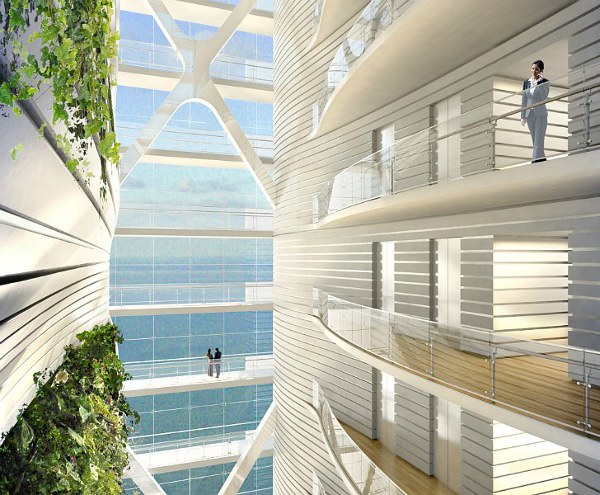
"A green building follows examples of living things in nature. It uses the free sources of energy and water that are available around it, particularly sunlight, wind, and rain. Like a liv-ing organism, it is adapted to the specific conditions in the particular place where it is."
This quote made me think about the lack of green buildings in colleges and universities. You rarely see colleges and universities go through the effort to make their buildings more green and eco friendly. I feel as if the more colleges and universities utilize more eco friendly methods around the campus, the more it translates to the students and use these methods in their daily lives. FGCU is a prime example of how eco friendly methods can translate to students. FGCU is the number one school when it comes to using eco friendly methods around the campus. The biggest way that the school is being eco friendly is the fact that the school is powered solely off sunlight, being that there is a solar panel field within the campus. This can translate to the students and allow them to see that the school is serious about being sustainable and the students can also see the effects of how being more sustainable can lead to better lives not only for the students but the economy as well.
MLA (Modern Language Assoc.)
Robertson, Margaret. Sustainability Principles and Practice. Routledge, 2017.
APA (American Psychological Assoc.)
Robertson, M. (2017). Sustainability Principles and Practice. Abingdon, Oxon: Routledge.
 "A daylit building supports the human need for connection with the natural world and thus lowers stress, improves productivity, and improves students’ ability to learn; this is why building codes in Europe require that workers have access to views and natural daylight (Lechner 2008, 386)."
"A daylit building supports the human need for connection with the natural world and thus lowers stress, improves productivity, and improves students’ ability to learn; this is why building codes in Europe require that workers have access to views and natural daylight (Lechner 2008, 386)."This quote provided an interesting fact to me because I never really noticed that have lighting from the natural world would have so many effects on the human body. I never noticed until reading this and being at FGCU that when I study in the study halls that have windows next to them that I actually study better than being in an all white blank room. This idea not only can apply to students but to workers as well. I think that the US should integrate what Europe is doing and require that workers have access to views of natural daylight. Most US jobs could care less about what type of lighting their employees endure but if having more natural daylit areas in the workplace could possibly lead to an increase in worker moral and productivity than its common sense to integrate it more into workplaces.
MLA (Modern Language Assoc.)
Robertson, Margaret. Sustainability Principles and Practice. Routledge, 2017.
APA (American Psychological Assoc.)
Robertson, M. (2017). Sustainability Principles and Practice. Abingdon, Oxon: Routledge.
 "No one person has all the knowledge needed to allow the parts of the system to work together. The old image of the solitary genius designing behind closed doors, with individual specialists who each develop isolated subcomponents on their own, has been replaced by a motivated, interdisciplinary team, working together, where each member has important knowledge to contribute and where synergy means that the final result is something no one person could have developed on their own."
"No one person has all the knowledge needed to allow the parts of the system to work together. The old image of the solitary genius designing behind closed doors, with individual specialists who each develop isolated subcomponents on their own, has been replaced by a motivated, interdisciplinary team, working together, where each member has important knowledge to contribute and where synergy means that the final result is something no one person could have developed on their own."I never would've thought that it would take a team effort to create green buildings. The idea of having multiple ideas to develop a green building though is actually better when you think about it. You have a room full of eco friendly people who are all motivated and dedicated towards building more eco friendly buildings that make the world more sustainable. Its possible that one person could handle creating a eco friendly building but when you have a multitude of people working on the same project with different ideas the results can actually be better than just that one person alone. Just goes to show that working in teams on a project is better than working at it alone.
MLA (Modern Language Assoc.)
Robertson, Margaret. Sustainability Principles and Practice. Routledge, 2017.
APA (American Psychological Assoc.)
Robertson, M. (2017). Sustainability Principles and Practice. Abingdon, Oxon: Routledge.
No comments:
Post a Comment